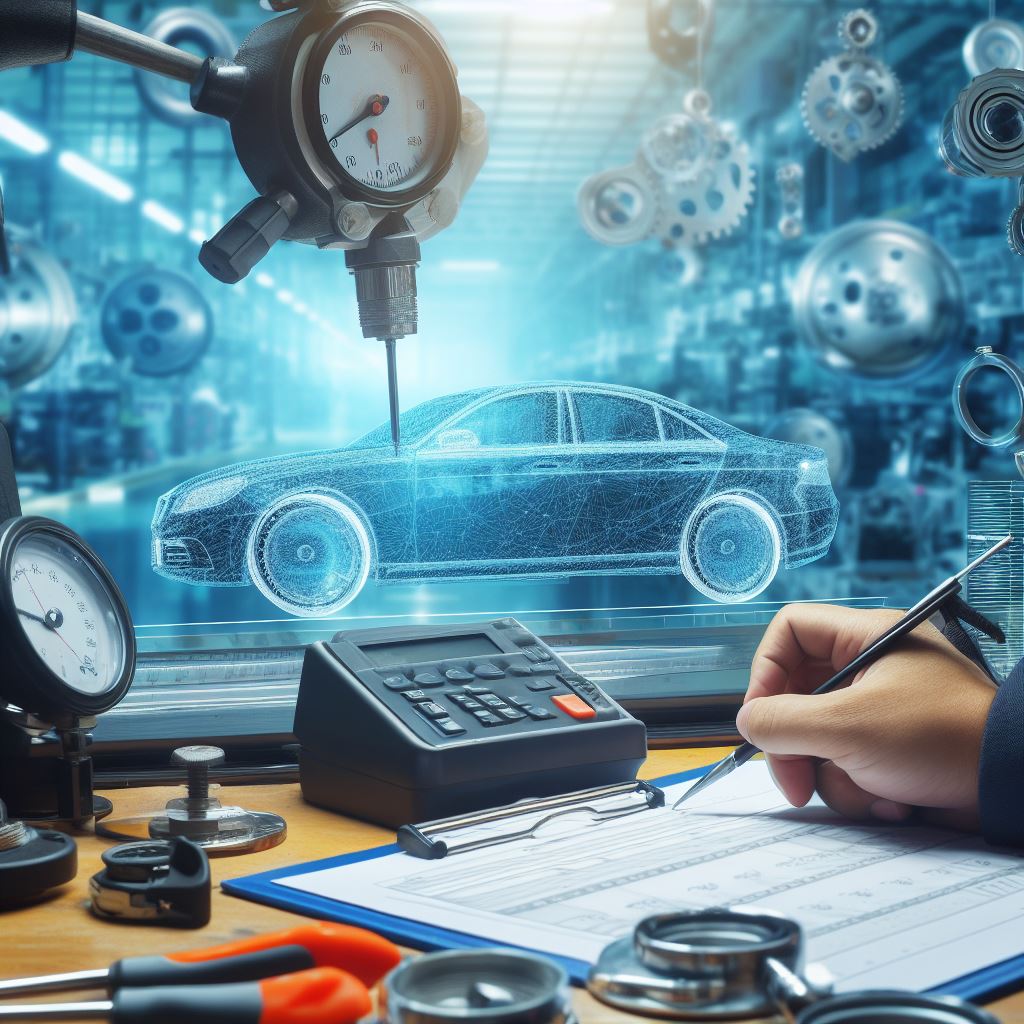How can automobile manufacturers carry out the whole life cycle management of enterprise measuring instruments and measurement standards through LIMS system?
Released:2023-10-27
With the rapid development of automotive technology, the full life cycle management of measuring instruments and measurement standards is becoming more and more important in automobile manufacturing enterprises. As an advanced management tool, LIMS (Laboratory Information Management System) can help enterprises achieve efficient and accurate management of measuring instruments and measurement standards.

1. What is a metrology LIMS system?
The Metrology LIMS system is an integrated laboratory information management system designed to manage the full life cycle of measuring instruments and metrology standards. It uses computer and network technology to integrate, analyze and display various information and data in the laboratory, and provide support for the work of the laboratory.
Second, the role and value of the LIMS system
1. Increased efficiency: Through automated data management and analysis, LIMS systems can significantly improve the efficiency of laboratory work.
2. Enhanced accuracy: Systematic data entry and analysis helps reduce human error and improve the accuracy and reliability of data.
3. Optimize resources: The LIMS system can conduct in-depth mining and analysis of experimental data, and provide data support for the optimal allocation of resources in the laboratory.
4. Enhance Quality: With the data analysis and reporting capabilities of the LIMS system, businesses can better conduct quality control and quality assurance.
3. The application of LIMS system in the whole life cycle management of measuring instruments and measurement standards
1. Equipment procurement: LIMS system can help enterprises make purchasing decisions for measuring instruments and provide comprehensive market research and screening functions.
2. Equipment acceptance: When the measuring instrument enters the site, the LIMS system can record and track the acceptance process to ensure the quality and compliance of the instrument.
3. Equipment maintenance: The system can set the maintenance plan and repair cycle of the measuring instrument, carry out preventive maintenance in time, and prolong the service life of the equipment.
4. Equipment scrapping: When the measuring instrument reaches the end of its service life or has a serious failure, the LIMS system can help the enterprise to scrap and ensure the rational use of resources.
5. Standard development: LIMS system can help enterprises develop and update measurement standards to ensure their compliance and leadership in the industry.
6. Standard implementation: Through the data analysis and monitoring function of the LIMS system, enterprises can understand the implementation of measurement standards in real time, and find and solve problems in time.
7. Standard improvement: According to the actual business needs and market changes, the LIMS system can help enterprises continuously improve and perfect the measurement standards to adapt to market changes and industry trends.
Fourth, the main measuring instruments and standards of automobile manufacturing enterprises
Automobile manufacturers are involved in a wide range of measuring instruments and measurement standards, some of the key categories are listed below:
1. Dimensional measuring instruments: such as calipers, micrometers, microscopes, etc., which are used to measure the size and accuracy of auto parts.
2. Quality testing equipment: such as weighing equipment, dynamometers, torque wrenches, etc., which are used to test the quality and performance of automobiles and their parts.
3. Material analysis instruments: such as spectrometers, X-ray flaw detectors, etc., which are used to analyze the material composition and quality of auto parts.
4. Process control tools: such as flow meters, pressure gauges, thermometers, etc., which are used to monitor key parameters in the automobile manufacturing process.
5. Environmental monitoring equipment: such as temperature and humidity meter, dust particle counter, etc., used to monitor the environmental conditions of the production workshop.
6. Calibration standards: such as length, mass, force and other reference materials, which are used to calibrate and verify the accuracy and reliability of various measuring instruments.
5. How to choose the right LIMS system?When choosing the right LIMS system for automotive manufacturers, the following points are worth paying attention to:
1. Demand analysis: clarify your own business needs and management goals, and select LIMS systems that meet your needs in a targeted manner.
2. Functional matching: Choose a LIMS system with complete life cycle management functions of measuring instruments and measurement standards to meet various business needs.
Related
Construction of digital laboratories for environmental testing institutions: with the help of science and technology, we will create a green future
Today, with the rapid development of science and technology, digital laboratories have become the core strength of environmental protection testing institutions. It not only improves the efficiency and accuracy of detection, but also provides more accurate data support for environmental protection.
Digitalization Drives Innovation: Exploring the Digital Transformation of New Energy Battery Manufacturing Enterprise Laboratories
With the rapid development of science and technology, digital transformation has become an important driving force for innovation and development in all walks of life. As an important pillar of green energy in today's world, the new energy battery manufacturing industry is facing unprecedented opportunities and challenges. The practice and application of digital transformation in new energy battery manufacturing enterprises is of great significance to enhance the core competitiveness of enterprises and promote the sustainable development of the industry.
Policy interpretation of the "Guiding Opinions on Promoting the Improvement of Enterprises' Measurement Capabilities".
In recent years, various competent authorities have issued many policies to encourage enterprises to improve their measurement management capabilities, such as the State Administration for Market Regulation and the Ministry of Industry and Information Technology jointly issued the "Guiding Opinions on Promoting the Improvement of Enterprises' Measurement Capabilities". The document proposes a number of measures, including strengthening the accumulation and application of enterprise measurement data, and building an enterprise measurement technology innovation ecology. Under the guidance of this important document, the company will usher in a clearer development direction in strengthening the construction of the measurement management system. This article will interpret the key provisions of the Guiding Opinions on the basis of them in combination with the policy guidance emphasized therein.
Pain points and LIMS solutions for rail transit testing institutions
With the advancement of science and technology and the implementation of digital policies, the rail transit industry is facing unprecedented challenges and opportunities. Especially in the field of equipment measurement management, the traditional model can no longer meet the needs of modern enterprises. In response to this trend, more and more rail transit companies are looking for innovative solutions. This paper will discuss the application of digital solutions in the management of metrology equipment in rail transit enterprises, and focus on the value and implementation of laboratory information management system (LIMS).
How to realize the integration of business and laboratory informatization of third-party testing laboratories
With the advancement of science and technology and the continuous development of global trade, third-party testing laboratories play an increasingly important role in ensuring product quality and safeguarding consumer rights. In this context, how to realize the integration of business and laboratory informatization and further improve the efficiency and accuracy of testing has become a problem worth exploring.
How to choose a laboratory management system (LIMS) for food processing enterprises
With the rapid development of the food processing industry, the demand for laboratory management systems is also increasing. Laboratory management systems (LIMS) are an indispensable part of food processing companies as they can effectively improve the efficiency and accuracy of laboratories and reduce costs. However, how to choose the right LIMS system for your business?










